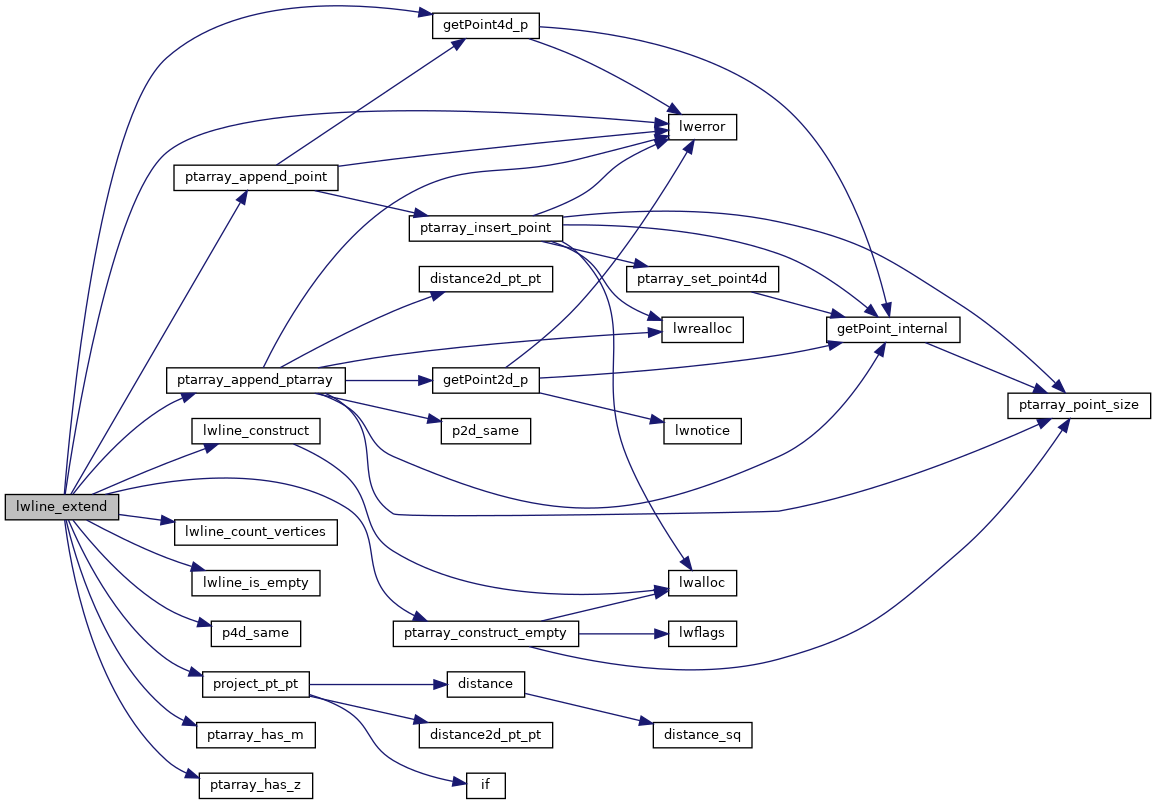◆ lwline_extend()
Extend the ends of a line.
Definition at line 672 of file lwline.c.
int ptarray_append_ptarray(POINTARRAY *pa1, POINTARRAY *pa2, double gap_tolerance)
Append a POINTARRAY, pa2 to the end of an existing POINTARRAY, pa1.
Definition: ptarray.c:177
POINTARRAY * ptarray_construct_empty(char hasz, char hasm, uint32_t maxpoints)
Create a new POINTARRAY with no points.
Definition: ptarray.c:59
int getPoint4d_p(const POINTARRAY *pa, uint32_t n, POINT4D *point)
Definition: lwgeom_api.c:125
int ptarray_append_point(POINTARRAY *pa, const POINT4D *pt, int allow_duplicates)
Append a point to the end of an existing POINTARRAY If allow_duplicate is LW_FALSE,...
Definition: ptarray.c:147
int lwline_is_empty(const LWLINE *line)
int project_pt_pt(const POINT4D *A, const POINT4D *B, double distance, POINT4D *R)
Azimuth is angle in radians from vertical axis.
Definition: measures.c:2499
LWLINE * lwline_construct(int32_t srid, GBOX *bbox, POINTARRAY *points)
Definition: lwline.c:42
Definition: liblwgeom.h:413
Definition: liblwgeom.h:426
References getPoint4d_p(), lwerror(), lwline_construct(), lwline_count_vertices(), lwline_is_empty(), POINTARRAY::npoints, p4d_same(), LWLINE::points, project_pt_pt(), ptarray_append_point(), ptarray_append_ptarray(), ptarray_construct_empty(), ptarray_has_m(), ptarray_has_z(), and LWLINE::srid.
Referenced by geometry_line_extend().
Here is the call graph for this function:

Here is the caller graph for this function:
